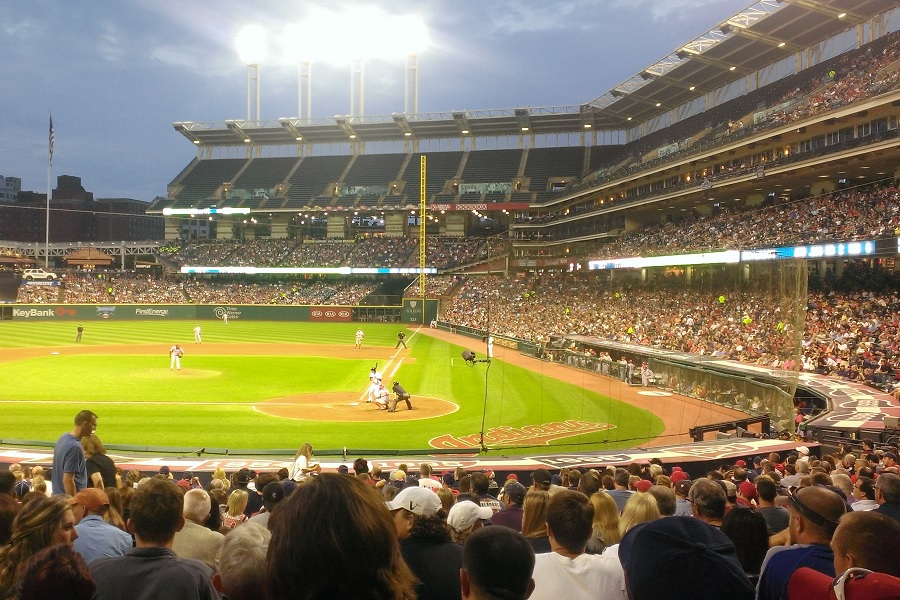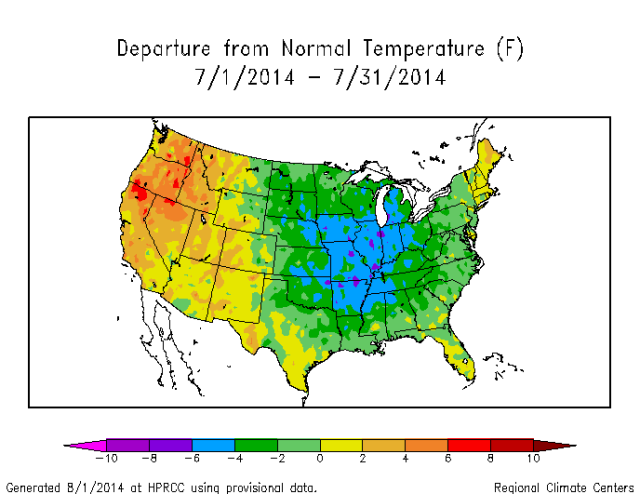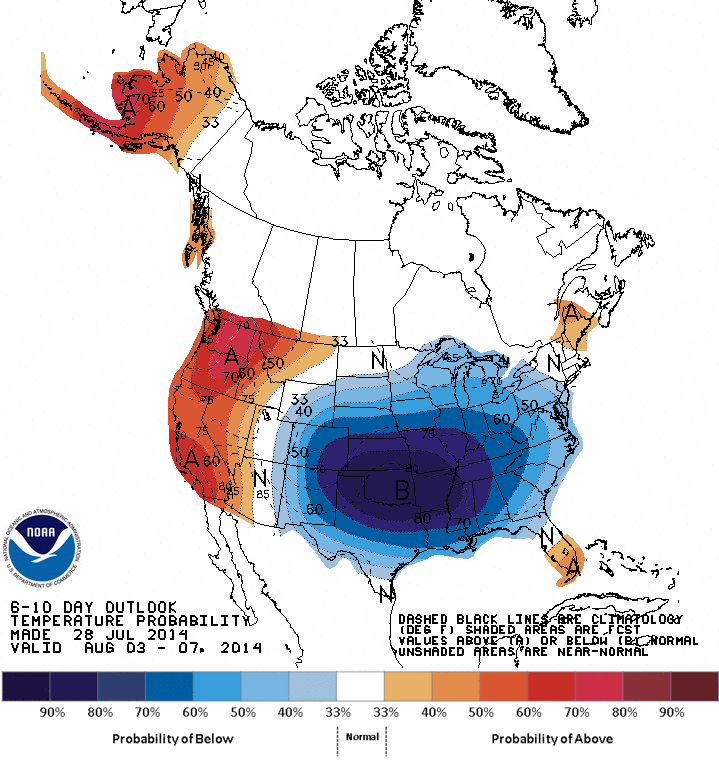The Wall Street Journal explains why the Cubs can sell 38,000 seats and only get 19,000 asses in them:
Since 2009, ticket sales are down almost 6,500 a game. Where have all the Cub fans gone?
The answer may be that they've in effect awakened from a beer-soaked party.
Over the first four years of Ricketts ownership, attendance sank 13.7%. It is flat so far this year versus 2013, but the figures don't include the legions of no-shows. "I have plenty of friends with tickets who can't get rid of them," said Jon Greenberg, executive editor of Team Marketing Report.
Count me in that group. After sitting through six innings of last night's sad 8-3 loss against the Giants (in which the Giants hit and fielded better than any team I've seen this season), we left shaking our heads. We've still got tonight's game available, plus the 4:05 pm back half of Tuesday's game, but we can't sell them. The Cubs will count our tickets as "paid attendance" even though no one will be using them.
It's even odds whether we're going to renew our season tickets next year, especially if the Cubs don't drop the prices. Unfortunately, it's even worse odds that the Cubs will end the season out of last place.
The Chicago Air and Water Show may not happen today because of rare weather conditions:
[T]he Chicago National Weather Service said "rare low clouds" are impacting the Air and Water show. Low clouds have a ceiling height of 1,000 feet, the weather service said. Only 2 to 3 percent of August days have had low clouds since 1973, the weather service said.
Now, skipping the foggy understanding of weather terms and government agencies the ABC reporter showed in that paragraph, it doesn't look good for the show. Right now conditions the lakefront has low instrument meteorological conditions due to a 125 m ceiling (somewhere around the 60th floor of most downtown buildings) and 6 km visibility. The latest forecast calls for more clouds.
We've had a cool, wet summer, following a record-cold winter, so Lake Michigan is just a huge fog maker lately. Yesterday was warm and sunny, but in the past 12 hours a low pressure system has passed directly overhead bringing northeast winds and draping a cold front across the region. It's 6°C warmer in Aurora and Kankakee than it is in Waukegan or Racine, for example.
So, thousands of people are disappointed today. Still, it's quiet and cool in Lincoln Park right now. That's not a horrible outcome.
(Hm. That didn't quite work, did it?)
We're now in our final weekend (for the time being) in Cleveland, and another person from the client has offered to take us to another Indians game. Two things:
1. I hope they play. Tonight's forecast calls for thunderstorms and rain.
2. If they do play, I hope they do better than last week.
The Indians are at .500, dead-center in the league, the division, and in all of baseball. Tonight they're (scheduled) to play the Diamondbacks, who are just one game ahead of the Cubs and so not a particularly threatening opponent.
Come on, rain. Go away.
Crain's has a good summary today of new moderate-alcohol beers that craft brewers in the area are making:
In June, Temperance Beer Co. released the first batch of Greenwood Beach Blonde, a creamy ale that checks in at 4 percent alcohol. The beer became the Evanston brewery's second-most popular, and the first batch sold out so quickly at Temperance's taproom that owner Josh Gilbert decided to broaden his focus: When Temperance made a second batch last week, it was immediately canned and sent to distributors.
The session-beer trend isn't limited to upstart microbreweries. Some of the largest craft breweries—including Founders Brewing Co. of Grand Rapids, Michigan; Deschutes Brewery Inc. of Bend, Oregon; and Lagunitas Brewing Co. of Petaluma, California, whose Midwest and East Coast operations are based in Douglas Park—now are making ales with less than 5 percent alcohol content year-round.
Premier local breweries such as 3 Floyds Brewing Co. of Munster, Indiana, and Two Brothers Brewing Co. in Warrenville are marketing session brews, and this summer Half Acre Beer Co. in Chicago's North Center neighborhood collaborated on a session ale with a brewery in Maine. The king of lagers, Anheuser-Busch InBev NV, is filling out its line of ballpark beers with Endless IPA from Goose Island, a limited-run ale with a 5 percent alcohol content.
I've had a couple of these, including Lagunitas All-Day IPA and even the InBev Endless IPA. I've also written about English craft beers that fall into the American "session" category because most English beers are 5% or so anyway. Even my go-to Belhaven Twisted Thistle is only 5.3% ABV.
I always knew the hop-and-high-alcohol fetish beers would give way in time to much more drinkable brews. I'm glad the market has responded so quickly and affirmatively.
From yesterday's game—with its 22,000 paid attendance:

Progressive Field holds 43,500 people (compared with Wrigley's 41,100) and yet has worse attendance this year. The Cubs are averaging 32,000 fans per game, with no game coming in under 25,000 paid; Cleveland is getting 18,600 per game with some early spring games pulling in fewer than 10,000. This, despite the Cubs holding onto last place like they're afraid to fall off the chart, and the Indians actually being the wild card at the moment.
Progressive Field isn't a bad ballpark. The Indians aren't a bad team. I guess Cleveland just isn't a huge baseball town.
Last month tied the record for the coolest July in state history:
The statewide average temperature for July was 21.3°C in Illinois, which ties the record cool July of 21.3°C set back in 2009.
As this plot indicates, the observed range in July monthly temperatures in Illinois is 7°C. On another note, the July 2014 average temperature is based on preliminary data so it is very likely that we will break the tie with 2009 as more data arrives.
The state climatologist has a map:

So Illinois was the country's cool spot back in January and again in July. I have to say, it's a lot better to do that in July.
A friend and I attended last night's Cubs game at Wrigley, and left before it ended. Good thing, too, because it wound up the longest game in team history:
This game, which took six hours, 27 minutes, was the longest game (by time) in Cubs’ history. It surpassed the previous record of six hours, 10 minutes that it took the Cubs and Dodgers to play 21 innings on Aug. 17-18, 1982.
[S]tarter Edwin Jackson needed 105 pitches just to throw four innings, and seven Cubs relievers combined to throw 11 scoreless innings and closer Hector Rondon wasn’t available.
Yes, that's how catcher John Baker wound up pitching in the 16th inning. At least he got the win.
Let me explain why we left: in the first inning, Colorado got three runs before getting their second out, because the Cubs' outfield couldn't get the ball back to the infield. Then both teams hit so many foul balls and lollygagged around the infield so much that the third inning ended almost 90 minutes after the game started. (Usually, 90 minutes in, we're well into the 4th or even 5th inning.)
So the two worst teams in the league played uninspired, boring baseball for six hours, and hit a record that I (mercifully) didn't wait to see. I'm not enjoying Wrigley as much as I used to.
Climate outlooks for the U.S. are coalescing around a pleasantly cool summer in Chicago:

Illinois climatologist Jim Angel explains:
As we approach the end of July the statewide average temperature in Illinois is 21.4°C degrees, which currently puts it in second place for the coldest July on record.
Here is how the previous top 10 coldest July temperatures for Illinois looked and what happened in the following August.... In 8 out of the 10 cases, the following August was colder than average. However, two of those “colder” August’s were marginally so (1924 and 1996). The one spectacular reversal was in 1947, where August was 4.0°C degrees above average after the 3rd coldest July. Therefore there is a historical tendency for cooler weather to prevail into August.
After the brutal winter we had six months ago (three months ago?), most people in Chicago welcome July and August afternoons like this. I'm even wearing a jacket to the game tonight, while I'm saving a bundle on air conditioning.
Since Cabrini-Green came down a couple of years ago, developers have salivated over the possibilities for the Near North area. This morning's Crain's has the latest:
Construction crews recently were busy drilling holes for the foundation of an 18-story, 240-unit apartment building at Division and Howe streets, one of several private developments sprouting just steps from the former Cabrini-Green towers.
“The skyline's going to change really quickly over there,” says Matt Edlen, director of Midwest and East Coast acquisitions at Portland, Oregon-based Gerding Edlen Development Inc., which is building the apartment tower. “There's so many possibilities for that neighborhood and how it comes together.”
It's coming together already. A Target store opened north of Gerding's site last fall, and a developer is negotiating to buy a parcel just northeast of the store and may build apartments there, says Chicago-based Baum Realty Group LLC Vice President Greg Dietz, who's selling the property. He declines to identify the developer. Chicago-based Structured Development LLC and John Bucksbaum are building 199 apartments and 360,000 square feet of retail space on the former site of the New City YMCA at Clybourn Avenue and Halsted Street. And a 190,000-square-foot retail-and-office development and new store for boating retailer West Marine are in the works at Division and Halsted streets.
Crain's, concerned exclusively with business, doesn't ask: what happened to all the previous residents? I guess, once you've gotten rid of all the poor people, they're someone else's problem.
Once the Tribune published a story about strange, unexplained spikes in red-light traffic camera tickets, even Ted Baxter could foresee
the lawsuit. But even before that scandal, there was this one, which has also spawned a lawsuit:
Matthew Falkner, who received a red-light ticket for $100 in January 2013, alleges in the suit that Redflex was only able to generate more than $100 million in revenue over the last 11 years because it had bribed a city official to get the contract.
The lawsuit alleges a former employee of Redflex blew the whistle on an improper relationship between the company and a Chicago Department of Transportation official in charge of the red-light camera program and that bribes given to that city official helped secure the city's contract for Redflex.
Ah, Mayor Daley, why again did you decide to retire at the end of your last term?